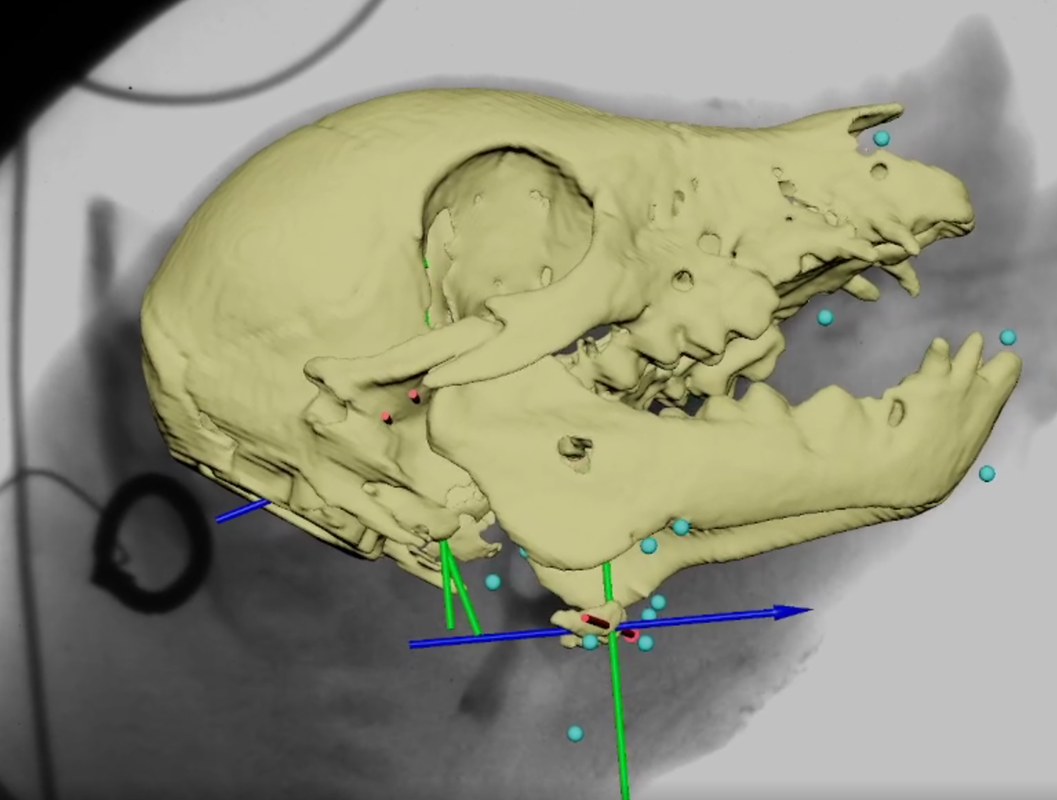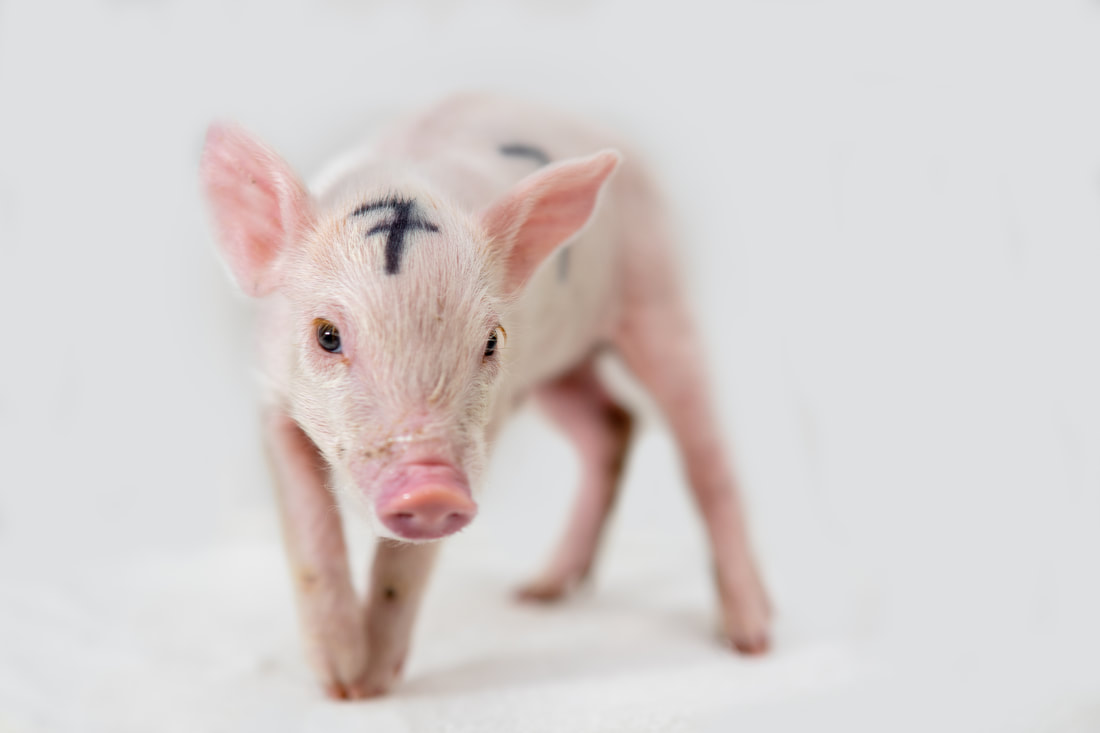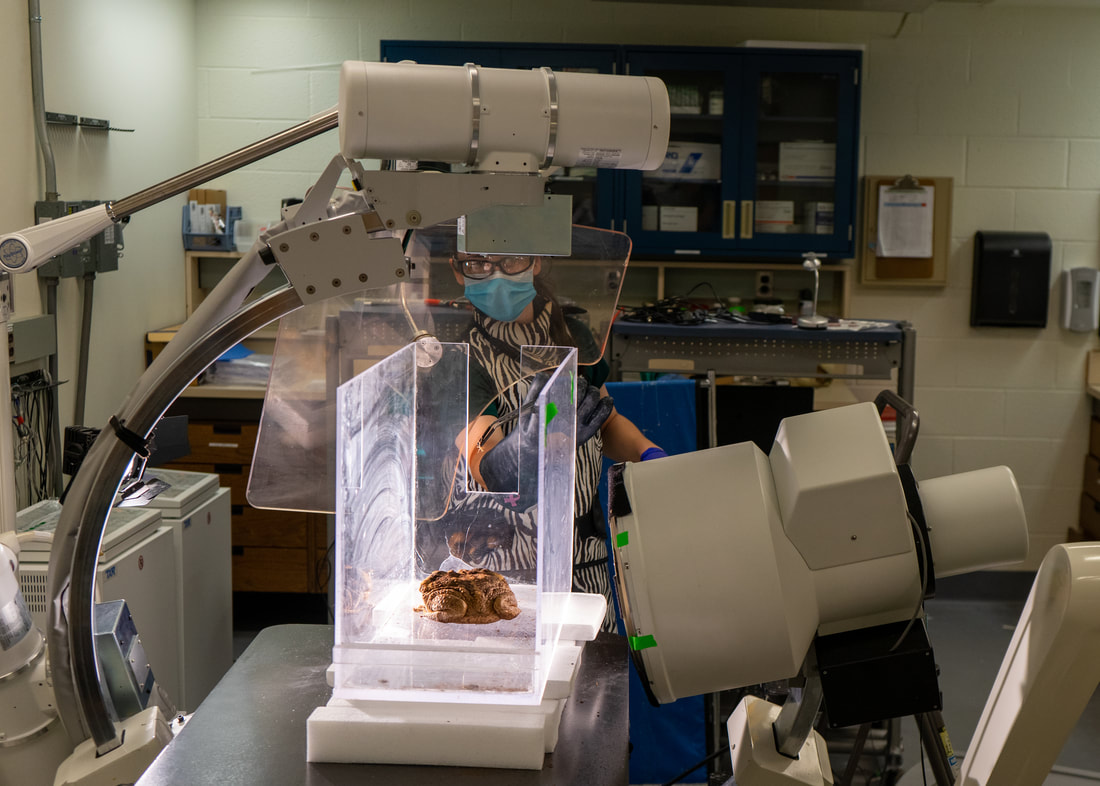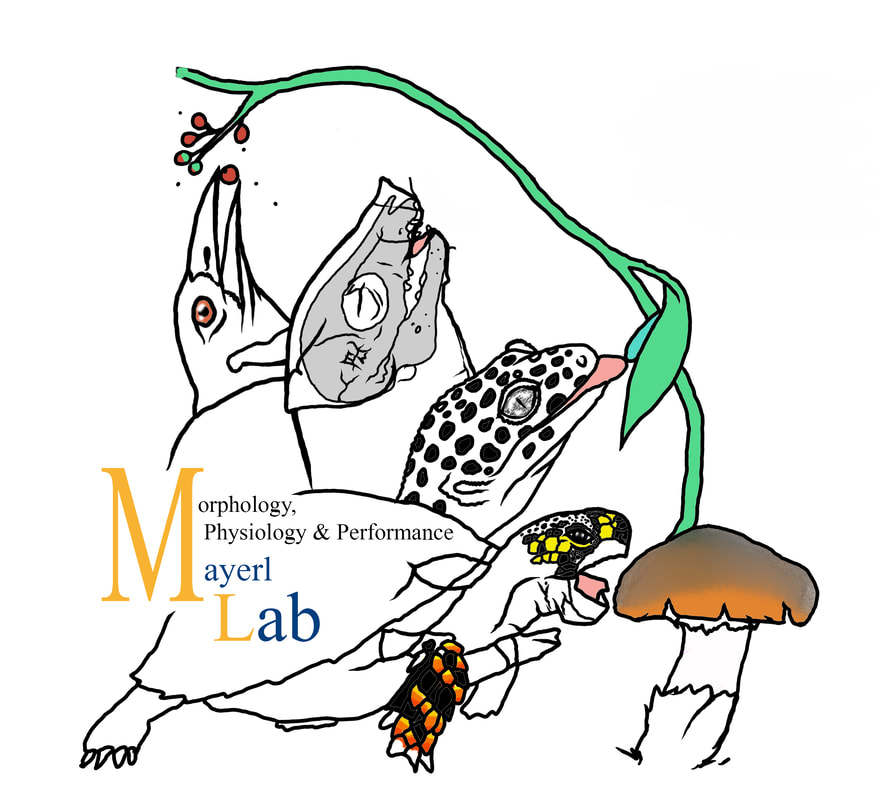Research overview
Research in the Mayerl lab is focused on understanding how variation in anatomy and physiology leads to variation in performance across ontogenetic and evolutionary scales. We integrate a variety of physiologic metrics with engineering principles to understand how vertebrates interact with their environment to understand questions ranging from sensorimotor integration, to whole-organismal performance. We have focused on both the feeding and locomotor systems in vertebrates, and our currently funded project involves evaluating infant feeding physiology in the context of the development of a novel, biomimetic nipple.
Our long term goals are to:
Our long term goals are to:
- Use an animal model system to evaluate the physiology of infant feeding to improve human infant health
- Evaluate the neurophysiology of how infant mammals transition from feeding on a single food source (milk) to the diverse diets exhibited by adult mammals
- Evaluate the evolution of neural control in feeding, drinking, and swallowing in vertebrates.
The development of a biomimetic nipple
|
Infant mammals face a myriad of difficulties associated with safe and successful feeding. In humans, feeding problems are so prevalent that the primary criteria for discharge from a hospital is 'independent oral feeding skills'. While breastfeeding infants is generally regarded as the ideal form of feeding for infants for a variety of both nutritional and biomechanical reasons, many infants must be fed on bottles, which are more similar physiologically to drinking from a cup than it is to breastfeeding. One reason for this disparity is the design of infant bottles, which are cisternic, based on ruminant anatomy, rather than lactiferous (ducted) as in most mammals. We are currently funded in a project to design, test, and validate a bottle-nipple system that replicates breastfeeding through considering and reproducing maternal anatomy. We have completed experiments on an early iteration of this project, and are in the process of refining the design with the goal to test it on infants with feeding difficulties.
|
Weaning in mammalsAll mammals suckle on milk as infants, prior to transitioning to their adult feeding physiology. While extensive attention has been paid to how evolution has acted on maternal properties of infant feeding, little attention has been paid to the variation within infants in how suckling is achieved, let alone to how this variation is reflected in or constrained by adult diet. We are in preliminary stages of investigating this, using pigs as a model system.
|




